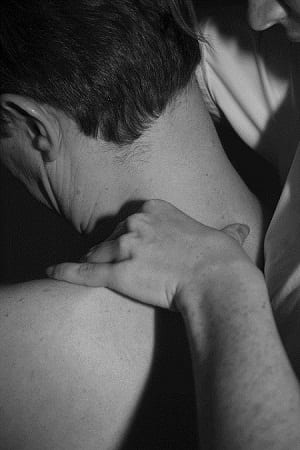 There is a large body of articles and various forms of evidence which support the mental and physical benefits of getting massages. The vast majority of these focus on the benefits of receiving a massage, however, a new study suggests that for couples, massaging your partner can have a positive effect for the massager as well as the partner getting the massage. The study from Northumbria University in the UK studied couples over three weeks and found that both giving and receiving them led to reduced stress and increased feelings of wellbeing for both partners.
There is a large body of articles and various forms of evidence which support the mental and physical benefits of getting massages. The vast majority of these focus on the benefits of receiving a massage, however, a new study suggests that for couples, massaging your partner can have a positive effect for the massager as well as the partner getting the massage. The study from Northumbria University in the UK studied couples over three weeks and found that both giving and receiving them led to reduced stress and increased feelings of wellbeing for both partners.
The popularity of massages continues to grow worldwide with almost one in five getting massages in 2016 in the United States. Of these, about half said it helped alleviate some sort of pain and improved wellness or helped with other issues. About a quarter said it reduced stress too. The majority of these respondents likely got their massages from professionals because that is the typical thing to do with almost 62% of massages getting done at spas, massage parlors, or a physical therapist’s office. This new finding offers perhaps a better way to get massages if both partners are willing. It can be financially beneficial compared to getting them from others and it may also improve intimacy. Learning to properly massage may be a good investment for couples interested in this sort of thing.
Further research should be conducted to verify the findings of this study, which looked at 38 people in 19 couples over 3 weeks. It will be interesting to see if this also extends to non-couples, or whether it is something about the relationship that might be driving the mutual benefits. This is plausible given that couples typically want their partner to be happy and feel good, so seeing them that way may, in turn, help them feel better and happier as well.
This study is the latest in a wide body of new studies which have looked at massages and their impacts in various scenarios from a scientific standpoint. Other studies have looked at things like recovering from athletic events, improvements in mental function, changes in blood flow, and injury recovery time after massages. Larger randomized controlled trials should be conducted in order to verify these results before prescribing them widely in medical practice, but the safety profile is good enough for most people that they can likely get massages (or now give them) and see if they notice a benefit in themselves. It is always optimal to talk to your doctor or physical therapist if you want to see whether massages can have a clinical impact on you if this is possible (although you probably do not need to schedule a special meeting for that unless you have some other condition that makes that a good idea). Massages are growing in popularity for a reason and the trend is likely to continue as research such as this one support the use and as a culture in general starts to better value wellbeing, relaxation, and meditation.
Picture Credit: osteoclinic
